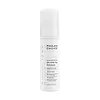What's inside
What's inside
 Key Ingredients
Key Ingredients

 Benefits
Benefits

 Concerns
Concerns

 Ingredients Side-by-side
Ingredients Side-by-side

Water
Skin ConditioningButylene Glycol
HumectantDodecane
PerfumingVaccinium Myrtillus Fruit Extract
Skin ConditioningAcrylamide/Sodium Acryloyldimethyltaurate Copolymer
Emulsion StabilisingSaccharum Officinarum Extract
MoisturisingPhenoxyethanol
PreservativePolysorbate 80
EmulsifyingIsohexadecane
EmollientHydroxyethylcellulose
Emulsion StabilisingTocopheryl Acetate
AntioxidantCaprylyl Glycol
EmollientEucalyptus Globulus Leaf Extract
PerfumingCarbomer
Emulsion StabilisingCitrus Aurantium Dulcis Fruit Extract
MaskingCitrus Limon Fruit Extract
MaskingCoco-Caprylate/Caprate
EmollientLactic Acid
BufferingMelaleuca Alternifolia Leaf Extract
PerfumingAcer Saccharum Extract
Skin ConditioningChamomilla Recutita Flower Extract
MaskingSorbitan Oleate
EmulsifyingHydroxyacetophenone
AntioxidantSodium Benzoate
Masking1,2-Hexanediol
Skin ConditioningAnthemis Nobilis Flower Extract
MaskingCamellia Sinensis Leaf Extract
AntimicrobialCitric Acid
BufferingDecyl Glucoside
CleansingLauryl Glucoside
CleansingLavandula Angustifolia Flower/Leaf/Stem Extract
MaskingMentha Viridis Extract
MaskingPogostemon Cablin Leaf Extract
PerfumingRose Extract
Skin ConditioningLactobacillus Ferment Lysate
Skin ConditioningSaccharomyces Lysate
Skin ConditioningWater, Butylene Glycol, Dodecane, Vaccinium Myrtillus Fruit Extract, Acrylamide/Sodium Acryloyldimethyltaurate Copolymer, Saccharum Officinarum Extract, Phenoxyethanol, Polysorbate 80, Isohexadecane, Hydroxyethylcellulose, Tocopheryl Acetate, Caprylyl Glycol, Eucalyptus Globulus Leaf Extract, Carbomer, Citrus Aurantium Dulcis Fruit Extract, Citrus Limon Fruit Extract, Coco-Caprylate/Caprate, Lactic Acid, Melaleuca Alternifolia Leaf Extract, Acer Saccharum Extract, Chamomilla Recutita Flower Extract, Sorbitan Oleate, Hydroxyacetophenone, Sodium Benzoate, 1,2-Hexanediol, Anthemis Nobilis Flower Extract, Camellia Sinensis Leaf Extract, Citric Acid, Decyl Glucoside, Lauryl Glucoside, Lavandula Angustifolia Flower/Leaf/Stem Extract, Mentha Viridis Extract, Pogostemon Cablin Leaf Extract, Rose Extract, Lactobacillus Ferment Lysate, Saccharomyces Lysate
Water
Skin ConditioningGlycolic Acid
BufferingSodium Hydroxide
BufferingChamomilla Recutita Flower Extract
MaskingAloe Ferox Leaf Juice Extract
Skin ConditioningCamellia Oleifera Leaf Extract
AstringentSodium Hyaluronate
HumectantPanthenol
Skin ConditioningSodium PCA
HumectantPropylene Glycol
HumectantButylene Glycol
HumectantHydroxyethylcellulose
Emulsion StabilisingPolyquaternium-10
Phenoxyethanol
PreservativeSodium Benzoate
MaskingIngredients Explained
These ingredients are found in both products.
Ingredients higher up in an ingredient list are typically present in a larger amount.
Butylene Glycol (or BG) is used within cosmetic products for a few different reasons:
Overall, Butylene Glycol is a safe and well-rounded ingredient that works well with other ingredients.
Though this ingredient works well with most skin types, some people with sensitive skin may experience a reaction such as allergic rashes, closed comedones, or itchiness.
Learn more about Butylene GlycolChamomilla Recutita Flower Extract comes from the Chamomile flower.
Chamomile is rich in antioxidants and has anti-inflammatory properties. Several compounds found in chamomile help with soothing, such as bisbolol.
Antioxidant components in chamomile make it an effective ingredient to help slow the signs of aging. Antioxidants help fight free-radical molecules, or molecules that may damage your skin.
Essential oils from chamomile have been found to improve wound healing due to its antimicrobial properties.
Ancient Greeks and Egyptians used Chamomile to treat skin redness and dryness. Chamomile has also been used to help treat stomach issues.
Learn more about Chamomilla Recutita Flower ExtractHydroxyethylcellulose is used to improve the texture of products. It is created from a chemical reaction involving ethylene oxide and alkali-cellulose. Cellulose is a sugar found in plant cell walls and help give plants structure.
This ingredient helps stabilize products by preventing ingredients from separating. It can also help thicken the texture of a product.
This ingredient can also be found in pill medicines to help our bodies digest other ingredients.
Learn more about HydroxyethylcellulosePhenoxyethanol is a preservative that has germicide, antimicrobial, and aromatic properties. Studies show that phenoxyethanol can prevent microbial growth. By itself, it has a scent that is similar to that of a rose.
It's often used in formulations along with Caprylyl Glycol to preserve the shelf life of products.
Sodium Benzoate is a preservative. It's used in both cosmetic and food products to inhibit the growth of mold and bacteria. It is typically produced synthetically.
Both the US FDA and EU Health Committee have approved the use of sodium benzoate. In the US, levels of 0.1% (of the total product) are allowed.
Sodium benzoate works as a preservative by inhibiting the growth of bacteria inside of cells. It prevents the cell from fermenting a type of sugar using an enzyme called phosphofructokinase.
It is the salt of benzoic acid. Foods containing sodium benzoate include soda, salad dressings, condiments, fruit juices, wines, and snack foods.
Studies for using ascorbic acid and sodium benzoate in cosmetics are lacking, especially in skincare routines with multiple steps.
We always recommend speaking with a professional, such as a dermatologist, if you have any concerns.
Learn more about Sodium BenzoateWater. It's the most common cosmetic ingredient of all. You'll usually see it at the top of ingredient lists, meaning that it makes up the largest part of the product.
So why is it so popular? Water most often acts as a solvent - this means that it helps dissolve other ingredients into the formulation.
You'll also recognize water as that liquid we all need to stay alive. If you see this, drink a glass of water. Stay hydrated!
Learn more about Water